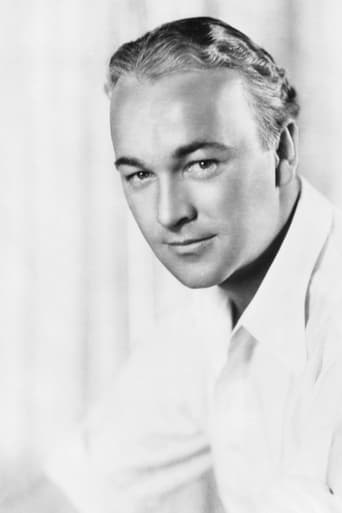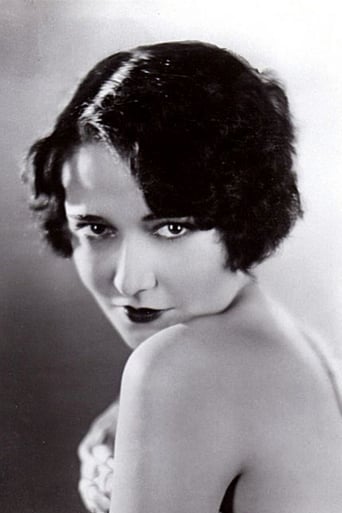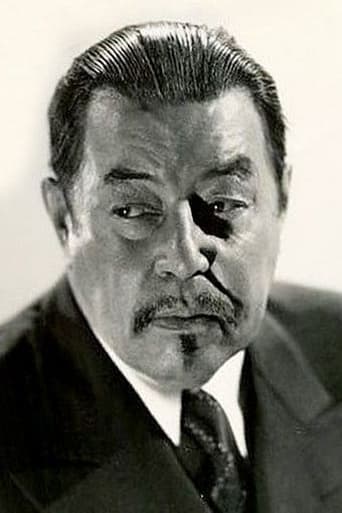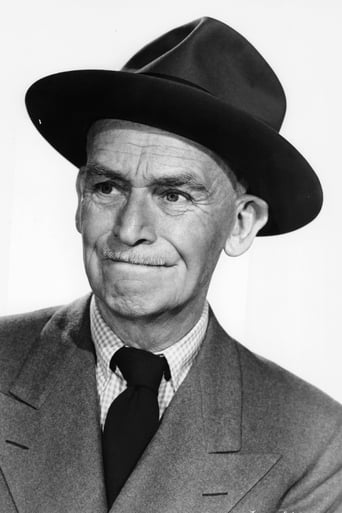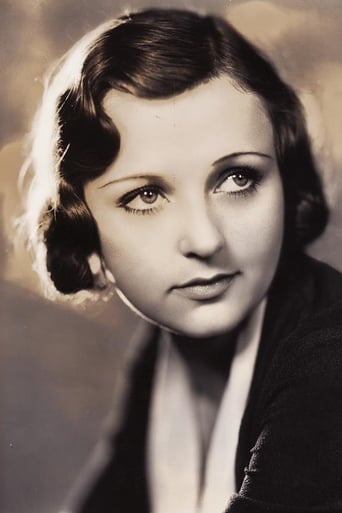Laikals
The greatest movie ever made..!
Titreenp
SERIOUSLY. This is what the crap Hollywood still puts out?
Invaderbank
The film creates a perfect balance between action and depth of basic needs, in the midst of an infertile atmosphere.
Darin
One of the film's great tricks is that, for a time, you think it will go down a rabbit hole of unrealistic glorification.
Michael Morrison
Someone wrote here "could have been better." There probably has never been a movie of which that couldn't have been said. Nevertheless, it is true here: The story needed to be fleshed out, with more details of how the good guys almost got out of their mess.The cast names bespeak a quality production; the director was a good one; the editor, Joseph Kane, did a great job with what he had, and, as an aside, it's interesting that he, as so many other editors, later became a crackerjack director himself.Bill Boyd was a great favorite with audiences, especially in his "Hopalong Cassidy" days, and with, especially, Cecil B. DeMille. He was a good actor, but was even more a strong personality.Dorothy Sebastian was a beautiful woman and, especially in this movie, a good, intense actress. She died awfully young, and in her last roles didn't even get screen credit. That seems a shame.Prolific James Gleason got second billing, even over the female love interest, and made his usual hit. He was around a long time, but we could use a character actor like him today.Other cast members deserve praise too, as does the stunt work. All in all, this is a good movie, perfect for a relaxing watch.
mgconlan-1
"The Big Gamble" has one of the most provocative premises ever cooked up for a movie. World-weary gambler Alan Beckwith (William "Hopalong Cassidy" Boyd in a surprisingly despairing modern-dress role) is tired of life. Owing $5,000 to the sinister Andrew North (Warner Oland) and $2,500 to a former servant, Beckwith cooks up the idea of having North take out an insurance policy on his life, then killing himself. North insists that the policy be for $100,000; that a North-hired hit man do the actual killing (since if Beckwith commits suicide, the policy becomes invalid); that Beckwith live a year and a day after taking out the policy; and that Beckwith's wife be the beneficiary. When Beckwith protests that he doesn't have a wife, North supplies him one: Beverly Ames (Dorothy Sebastian), who's under North's influence because her brother Johnny (William Collier, Jr.) is also on the hook to him. The good news is in the striking performances of both leads - and of James Gleason and ZaSu Pitts as a comic-relief couple (though I have a hard time watching Pitts in comic roles without thinking of how Hollywood wasted her talent as a dramatic actress despite her incandescent performance as Trina in Stroheim's "Greed," which should have done for her what "Sybil" and "Norma Rae" did for Sally Field 50 years later) — and some intriguingly proto-noir compositions by cinematographer Hal Mohr.The bad news is Fred Niblo's surprisingly slow, stodgy direction - by 1931 virtually no one was still having the actors pause between hearing their cues and speaking their own lines, but Niblo directs like it was still 1929 - Mohr's mostly plain, uncreative cinematography (which doesn't sustain the marvelous atmospherics of the opening scenes), and some dubious performances by the supporting players. William Collier, Jr. comes off way too queeny as Johnny - we can't muster much sympathy for someone this wimpy - and Warner Oland, though playing a character with an Anglo name, inexplicably not only wears his Charlie Chan makeup but speaks in his Charlie Chan voice. Though a previous silent version of this story was made, "The Big Gamble" really should have been filmed a third time in the 1940's; its plot would have been a natural for film noir.
boblipton
William Boyd is willing to kill himself for enough insurance money to pay off his debts, but crime boss Warner Oland raises the stakes: a year and a day, and the money will nominally be paid to wife-for-hire Dorothy Sebastian. But a lot can happen in a year...Shot beautifully by under-rated DP Hal Mohr, this movie, with a newly mobile sound camera is very good visually. Unfortunately, leads Boyd and Sebastian are not quite out of the silent era and director Fred Niblo is not so good at directing the dialogue -- nor does the depression that the leads evince for the first half of the movie, help things much. James Gleason and Zasu Pitts are, of course, excellent, but, despite an excitingly shot finale,the acting prevents this from being more than an averagely good picture.
ksf-2
The Big Gamble opens on New Year's eve, with a broke gambler trying to figure out how to work his way out of debt. Alan Beckwith (Bill Boyd) gets local thug Andrew North (Warner Oland) and Beverly Ames (Dorothy Sebastian) involved in a scheme to come up with money fast. Viewers will recognize Warner Oland as the lead in all the Charlie Chan movies in the 1930s. Also keep an eye out for James Gleason as Squint Dugan, small time crook. He will go on to play the ultimate slow-witted New York police lieutenant in just about every film made in the 1940s. Zasu Pitts plays Dugan's wife, maid to the Beckwiths. Sound and light quality are a little iffy, but that can be forgiven, since it was the early days of talkies. The dialogue is all a bit stilted and hesitating, apparently since everyone was new to the live sound track. Director Fred Niblo only made two more films after this one. Niblo had an interesting history; his brother- in- law was George M. Cohan, and Niblo was one of the founders of the Academy of Motion Pictures. Not the strongest script or acting, but its a fun, low-key film. Even a couple surprises.
